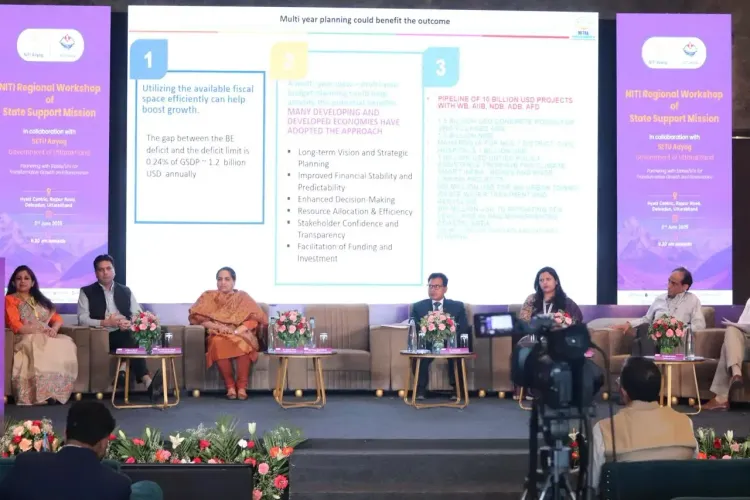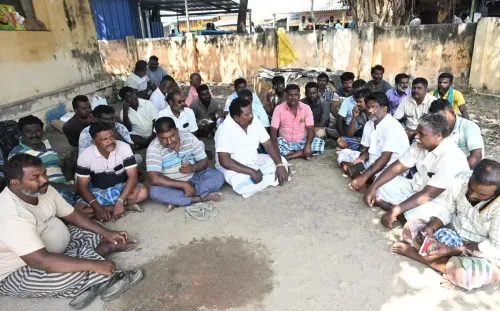How is NITI Aayog Enhancing Engagement with States?

Synopsis
Key Takeaways
- Structured collaboration is essential for effective governance.
- The role of SITs is pivotal in achieving state and national goals.
- Data-driven decision-making platforms enhance governance.
- Peer-learning fosters knowledge sharing among states.
- Focus areas include climate change, capacity building, and monitoring.
New Delhi, June 3 (NationPress) The NITI Aayog on Tuesday conducted a regional workshop aimed at promoting structured collaboration with states.
This workshop, part of the State Support Mission (SSM), took place in Dehradun and was organized in partnership with the State Institute for Empowering and Transforming Uttarakhand (SETU Aayog), a body under the Uttarakhand government.
NITI Aayog announced that this workshop is the inaugural event in a series under the Central Sector Scheme designed to enhance structured engagement between NITI Aayog and States/UTs through State Institutions for Transformation (SITs).
The primary objective of the event was to unify States and UTs to exchange insights on SSM initiatives and facilitate mutual learning.
The opening session featured notable attendees including Dr. V.K. Saraswat, Member of NITI Aayog; Raj Shekhar Joshi, Vice Chairperson of SETU Aayog; Anand Bardhan, Chief Secretary of Uttarakhand; Shatrughna Singh, CEO of SETU Aayog, alongside senior officials from NITI Aayog. They underscored the vital importance of SITs in propelling state development and guiding state visions.
The discussions centered around the pivotal role of SITs in fulfilling both state and national objectives, with experts sharing valuable insights regarding the structure, guiding principles, and priority areas of SITs, emphasizing their contribution to aligning State visions with national priorities to facilitate socio-economic transformation.
The workshop also provided a platform for rich peer-learning, featuring contributions and presentations from senior officials and representatives from SIT/planning in Punjab, Delhi, Jammu and Kashmir, Haryana, Uttarakhand, Chandigarh, and Madhya Pradesh, discussing the status, structure, and priorities of their respective SITs.
Additionally, a session focusing on data-driven governance showcased platforms such as the NITI for States portal and the Viksit Bharat Strategy Room at NITI Aayog to promote evidence-based decision-making.
The Director General of the Bihar Institute of Public Administration and Rural Development (BIPARD), Gaya, and a senior officer from the Lal Bahadur Shastri National Academy of Administration (LBSNAA), Mussoorie, shared practical examples on how to incorporate data governance into policymaker training.
Finally, the regional workshop addressed critical priorities such as climate change mitigation, monitoring and evaluation, state vision formulation, and capacity building, providing States and UTs with an opportunity to reflect on SIT implementation, exchange key insights, and encourage collaboration.










